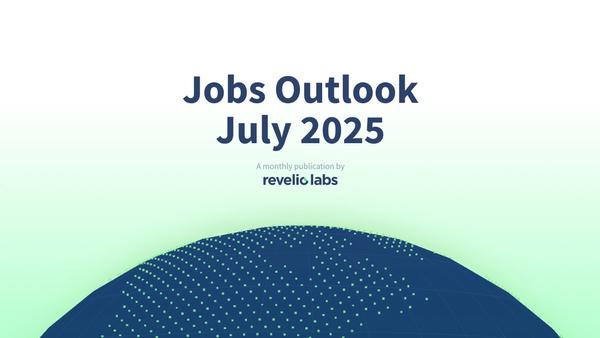Skills Mismatch is Driving State-Level Brain Drain
Some state university systems prepare their grads for their local labor markets better than others
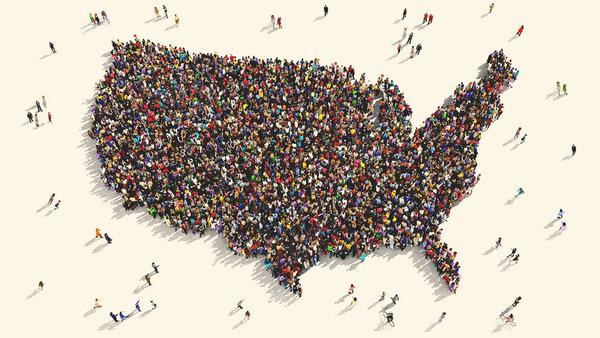
Universities play a significant role in shaping the skills of the local workforce. This week, Revelio Labs focuses on the largest state universities and uncover their skill specialties. We also assess the role that state universities play in supplying the skills required in the local jobs market.
The map below shows the skill specialty of the largest state university system by enrollment. For a skill to be a university system’s specialty, it has to be overrepresented in the profiles of graduates from the university system, relative to graduates from other universities.
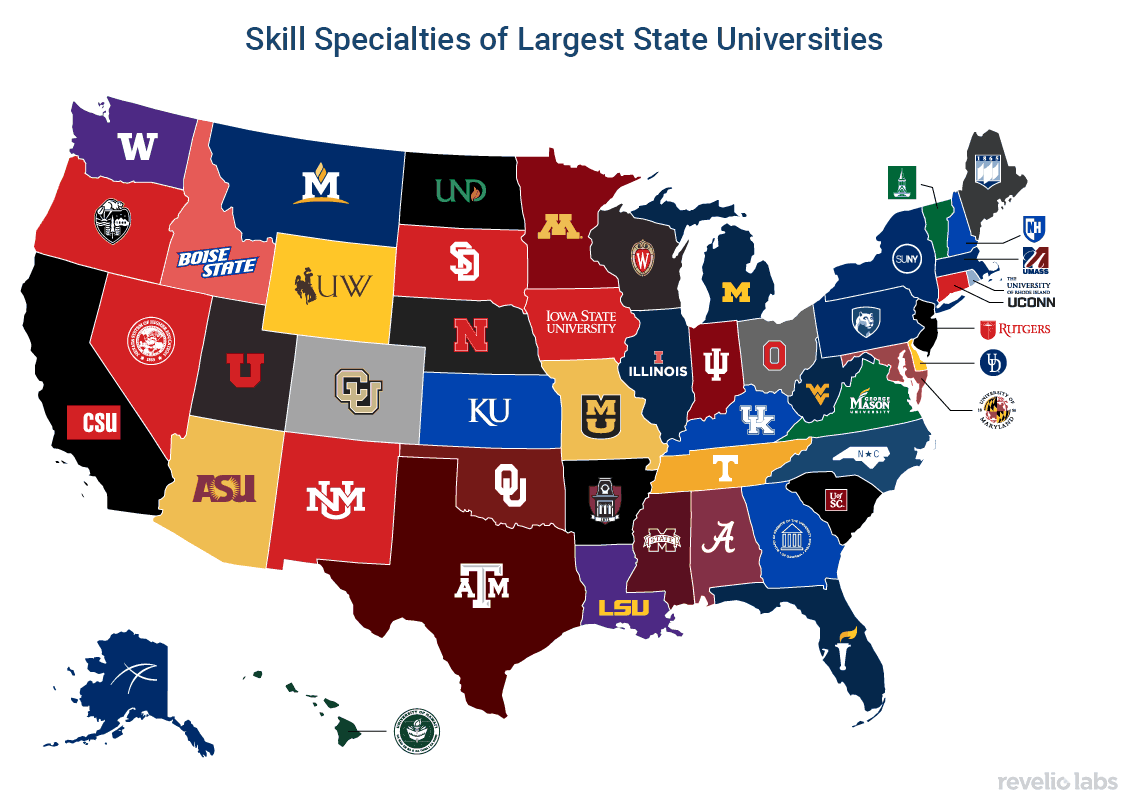
Many universities specialize in skills that are related to their state’s major economic activity. For example, Iowa State University specializes in agriculture, which is its third-largest industry in the state, contributing about 7% to the states’ GDP. Likewise, in Texas, the largest oil-producing state in the US, Texas A&M University specializes in oil and gas.
Sign up for our newsletter
Our weekly data driven newsletter provides in-depth analysis of workforce trends and news, delivered straight to your inbox!
Do these universities meet local jobs market needs? Revelio Labs finds that the graduates from some university systems, like the SUNY system in New York, have skills that closely match those demanded in job postings, while graduates from other systems, like the University of Wyoming, are poorly equipped to meet their state’s skill demands.

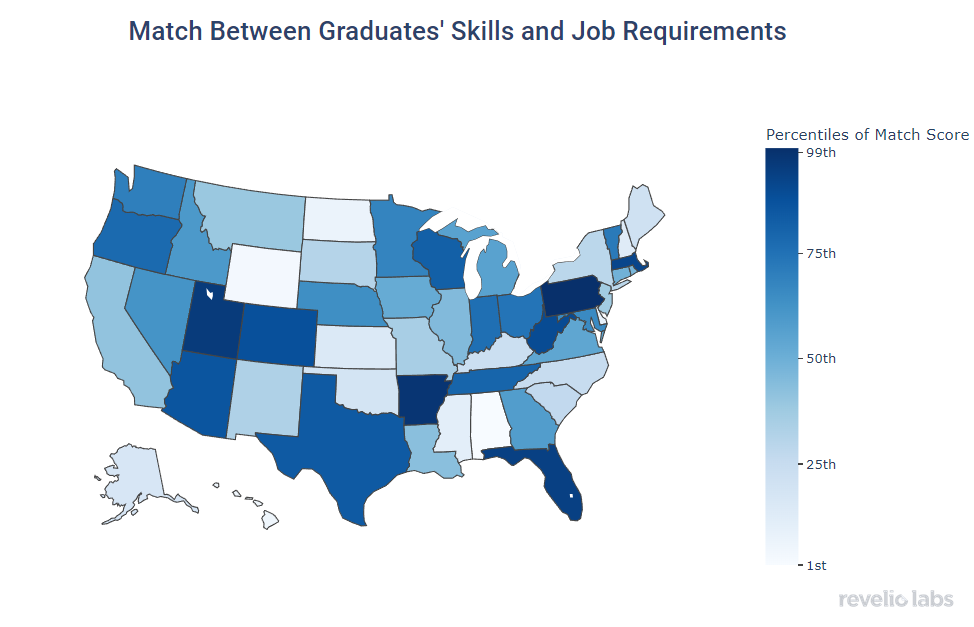
This mismatch between graduates’ skills and the skills demanded by employers plays a key role in shaping inter-state migration patterns. We find a positive relationship between state universities’ skill match scores and the fractions of their graduates who work in the state in which they got their degrees. However, there are some exceptions – states like West Virginia and Vermont have high skill match scores and high rates of inter-state migration, suggesting that state characteristics like size and availability of job opportunities may also play a key role in migration patterns.

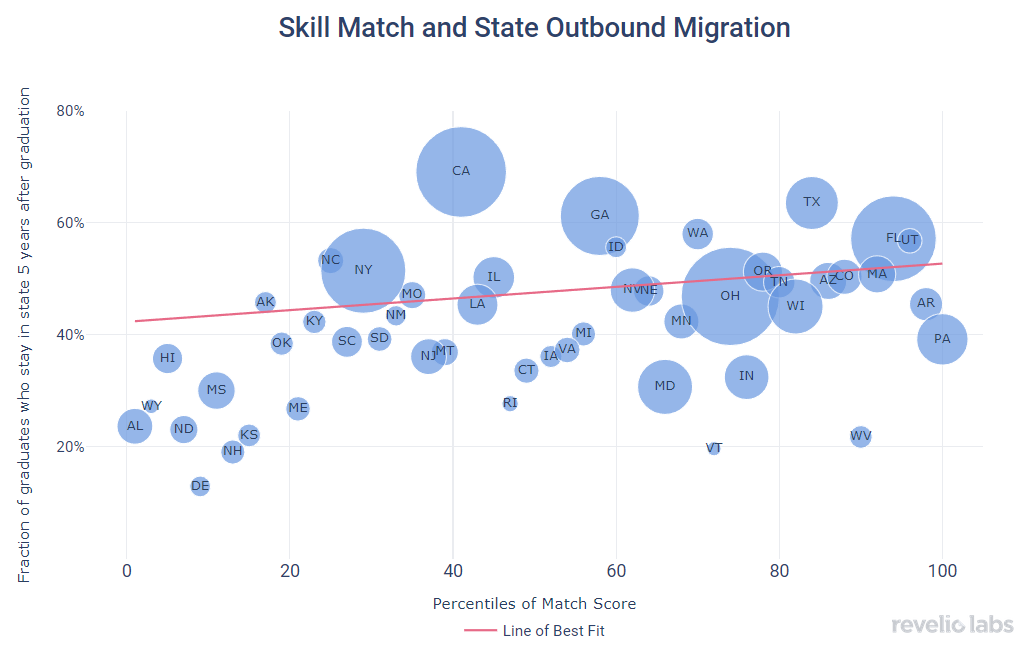
Key Takeaways:
- Many state university systems have skill specialties that are related to the main industries in the state. For example, Iowa State University focuses on agriculture, and Texas A&M focuses on oil and gas.
- State university systems that best prepare their graduates for the needs of local labor markets are Florida, New York, and the Pennsylvania.
- The mismatch between the skills of recent graduates and the demands of local labor markets appears to be a key driver of migration to different states upon graduation.

